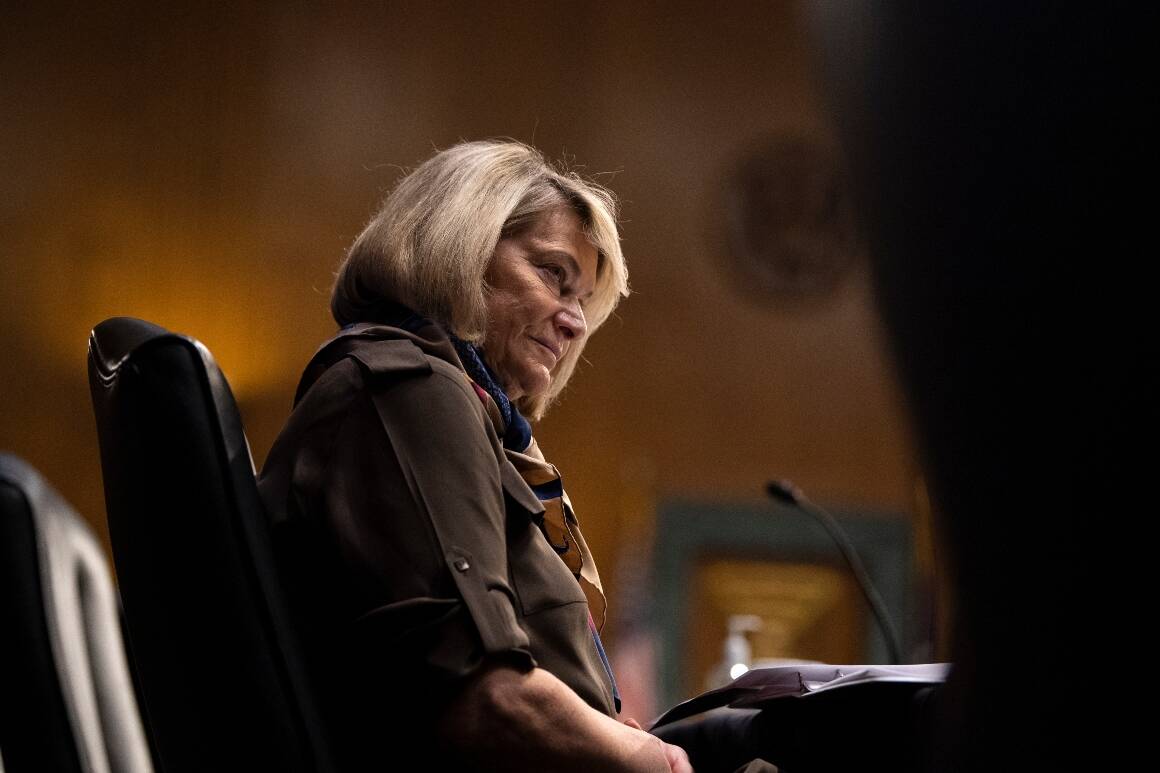A bipartisan group of lawmakers are on a collision course with the Biden administration over a push to make last-minute changes to cryptocurrency tax provisions buried in the infrastructure bill before the Senate.
Finance Committee Chairman Ron Wyden (D-Ore.), senior tax writer Pat Toomey (R-Pa.) and Sen. Cynthia Lummis (R-Wyo.) want to narrow who would be subject to new tax reporting requirements that are intended to improve tax compliance among those trading digital currencies.
Echoing concerns from the cryptocurrency industry, they say the legislation’s definition of who counts as a “broker” — and therefore subject to the new rules — is overly broad, and will sweep in too many unintended targets. They want to amend the legislation to specifically exclude people like software developers.
But the administration, which had advised the larger bipartisan group of lawmakers who put together the infrastructure plan, calls that bunk.
It believes the industry is using scare tactics to try to water down the requirements, a senior administration official said, speaking on condition of anonymity. And the administration believes the proposed changes are significant enough to put a dent in the $28 billion budget forecasters anticipate the provisions raising for the $550 billion infrastructure plan.
The unusual dispute, pitting the Senate’s top tax writer against his colleagues in the administration, comes in what party leaders hope will be the final hours of debate over the plan, with Majority Leader Chuck Schumer pushing to wrap up work this week.
The cryptocurrency provisions are generally designed to ensure that when people buy and sell them, basic information on how much they paid for them, as well as their gross proceeds, are reported to the government. They’re aimed at mimicking the automatic reporting that happens when people sell stocks and other securities, on the theory that people will be more likely to pay taxes if they know the IRS is aware of the transactions.
The lawmakers’ amendment would narrow the definition of what counts as a broker in the provision to exclude certain crypto groups, including miners, software developers and transaction validators.
“Investors failing to pay tax they owe through cryptocurrency is a real problem, and I strongly support third-party reporting by exchanges where cryptocurrency is bought, sold, and traded,” Wyden said in a statement. “Our amendment makes clear that reporting does not apply to individuals developing block chain technology and wallets.”
Said Toomey: “By clarifying the definition of broker, our amendment will ensure non-financial intermediaries like miners, network validators, and other service providers—many of whom don’t even have the personal-identifying information needed to file a 1099 with the IRS—are not subject to the reporting requirements specified in the bipartisan infrastructure package.”
Coinbase and numerous industry groups quickly issued statements supporting the amendment effort, including the Blockchain Association, Coin Center, Ribbit Capital, and Square, as well as the Association for Digital Asset Markets.
“Senators Wyden, Lummis, and Toomey are right that this language would place unworkable requirements on a nascent industry,” they said.
“Clarifying the provision to address our concerns would not affect the reporting requirements on crypto exchanges that operate on behalf of customers,” the Blockchain Association, Coinbase, Coin Center, Ribbit Capital, and Square said in a joint statement.
But the administration, which worked behind the scenes with lawmakers on the provisions in question, scoffs.
It says people like miners are minor players in the cryptocurrency economy, the official said, and it has no intention of pressing people for information they could not possibly have.
The amendment will needlessly tie Treasury’s hands when it comes time to develop regulations spelling out the details of how the rules would work, the person said.
A spokesperson for Sen. Rob Portman (R-Ohio), one of the main authors of the legislation, has argued that it would not force non-brokers to comply with IRS reporting obligations. A Portman spokesperson did not immediately provide comment on the amendment.
The proposed revisions do not address a separate complaint by the industry: that the legislation would give the IRS too much authority to demand information when people move assets out of exchanges, which some argue goes well beyond what’s required when people sell stocks and other securities.
“Yes, let’s get solid reporting requirements in place that flesh out tax cheats,” said Paul Grewel, chief legal office at Coinbase, writing on Twitter on Monday. “But let’s not casually compel production of data on millions of innocent Americans when a more tailored solution is just as effective.”

